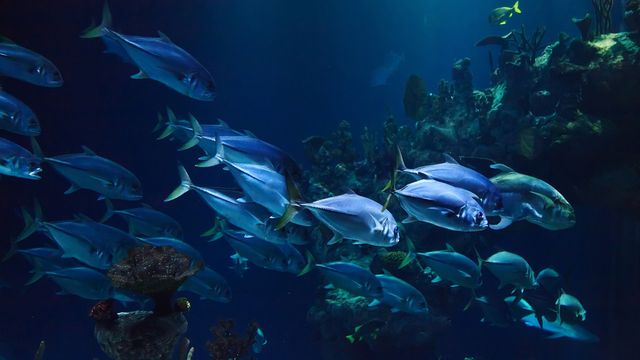July 18, 2024: A study led by Nord University including experts from Newcastle University project significant changes in key fish populations, warning of potential local extinction of Arctic demersal fish by the century's end without climate refugees in eastern latitudes.
An international team analyzed data from 16,345 fishery-independent trawls conducted between 2004 and 2022. Focusing on 107 marine fish species in the northeast Atlantic and the Barents Sea, they employed advanced modeling to forecast distribution and biomass changes under three future climate scenarios for 2050 and 2100.
Published in Nature Communications, the study indicates that while warmer-water fish are migrating into the Arctic, they won't fully compensate for the loss of traditional Arctic species. This shift could reduce overall fish populations, particularly the most abundant species, despite an increase in species diversity.
Newcastle University’s School of Natural and Environmental Sciences, Dr. Fabrice Stephenson, said “Given the large changes we predict under future climactic conditions, it’s really important that future fishery management strategies and marine protected area planning consider shifts in species biomass dynamics and distributions. The research team is currently exploring these important considerations as part of on-going projects.”
The research forecasts a rise in species diversity but a decline in the dominance of current species within the ecosystem. Warmer-water species are expected to extend northward, while colder-water species may retreat.
The international collaboration included experts from Nord University in Bodø, Norway; the Institute of Marine Sciences (ICM-CSIC) in Barcelona, Spain; the Ecopath International Initiative (EII) in Barcelona, Spain; and Newcastle University in the United Kingdom.
Dr. Cesc Gordó Vilaseca, of Nord University’s Faculty of Biosciences and Aquaculture, is the study's first author. He said, “Climate Warming is happening in the Arctic Barents Sea faster than anywhere else, and our study suggests structural changes in the fish community as a result. More observations on these changes in the years to come will help fisheries adapt to the effect of climate warming of biodiversity.”
Full paper: https://www.nature.com/articles/s41467-024-49911-
ABOUT NEWCASTLE UNIVERSITY: Newcastle University, UK, is a thriving international community of more than 28,000 students from over 130 countries worldwide. As a member of the Russell Group of research-intensive universities in the UK, Newcastle has a world-class reputation for research excellence in the fields of medicine, science and engineering, social sciences and the humanities. Its academics are sharply focused on responding to the major challenges facing society today. Our research and teaching are world-leading in areas as diverse as health, culture, technology and the environment. Newcastle University is committed to providing our students with excellent, research-led teaching delivered by dedicated and passionate teachers. Newcastle University is ranked 110th in the QS World Ranking 2024 and 139th in the Times Higher Education World University Ranking 2023.

 The new research predicts significant shifts in marine fish communities in the North Atlantic and Arctic Oceans because of climate warming.
The new research predicts significant shifts in marine fish communities in the North Atlantic and Arctic Oceans because of climate warming.










.jpeg)



.jpg)





.jpeg)

.jpg)





.png)

